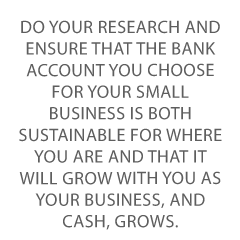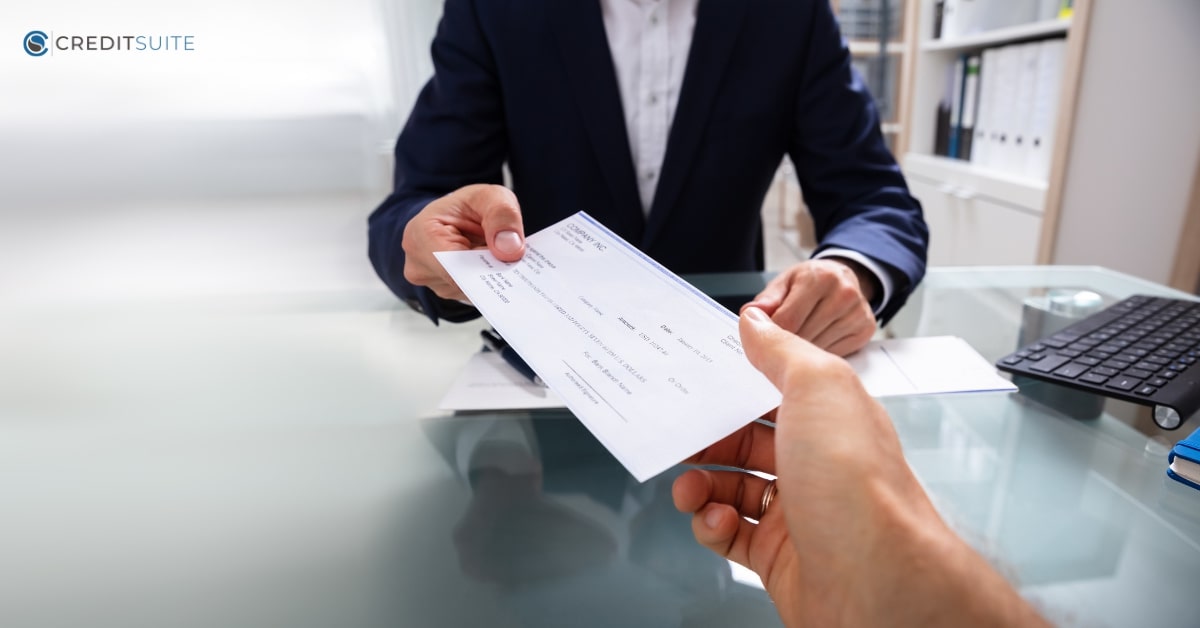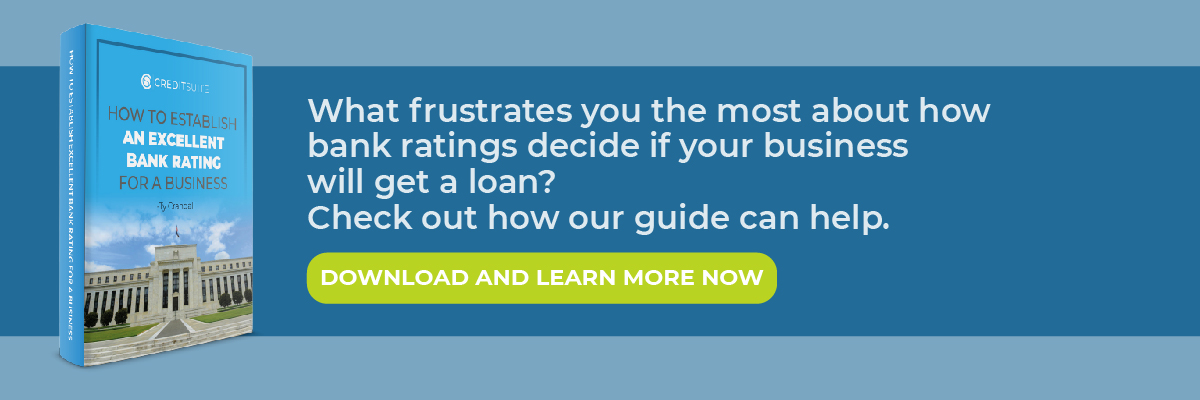Do I need revenue to open a business bank account?
It varies from lender to lender. Some do require minimum revenue for access to business banking options, while others do not.
Some institutions, such as Axos Bank, offer account options for new businesses as well as options for more established businesses, including business savings account options.
A basic business checking account option may have requirements more easily met by newer businesses. This means no or minimum revenue requirement, as well as lower fees, reduced account balance requirements, and more.
Can I use my personal checking account for business if I’m a sole proprietor?
Technically yes, but it can be a very bad idea to use your personal account for business banking.
For example, using separate accounts makes tracking business expenses much easier for tax purposes. Also, without a business account, it’s impossible to get a merchant account, which allows you to accept credit card payments.
Of course, many business credit issuers require a business account as well. That means using your personal account could impede your ability to get a business credit card.
Lastly, a business bank account will offer many features for your business that a personal account will not offer. This is not an exclusive list, but you get the point.
Can I use my personal checking account if I own a corporation or LLC?
Again, technically yes. But, it’s frowned upon even more to do so. In addition to missing out on the benefits of using a business bank account, there are many more negative implications possible if you use your personal account for business purposes.
One includes the fact that you will be writing personal checks for your corporation or LLC expenses. This can cause tons of issues when it comes to taxes. It can also cause complicated liability issues. It’s best all around to have a dedicated business bank account if you own your own business.
It can be very tempting in the early days of a new business to just run all cash through your personal checking account. It’s not a smart move, however. Here’s what you need to know about business checking vs personal checking.
What is the Difference Between a Personal and Business Checking Account?
In addition to the obvious fact that a business account is for your business cash rather than your personal cash, there are other differences as well.
Requirements
There are a number of things you may need to open a business checking account for your small business.
For example, to open your business bank account, it’s common to have to prove you own the business.
That usually means providing a copy of the “Doing Business As” documents or articles of incorporation, or maybe a business license. It depends on the lender.
Of course, we recommend incorporating rather than operating as a sole proprietorship or DBA for a number of reasons. First, it’s necessary to provide complete separation between the small business owner and the business, which is the cornerstone of a Fundability Foundation™.
However, incorporating also offers some protection for your personal finances. If your business falls on hard times, you don’t want your personal finances to suffer any more than necessary.
Cost
There can also be a cost difference between a business checking account and a personal checking account. This is more than fees. There can also be differences in the minimum cash deposit required to open the account, as well as minimum balance requirements.
It’s not unheard of to find free business checking accounts, but you need to be careful when it comes to that. They can be great, but you have to be certain they will grow well with your business.
Often a free business bank account will only allow a limited number of transactions. Or, on the flip side, you have to do a minimum number of transactions in a certain period of time for the bank account to remain “free.”
 Do your research and ensure that the bank account you choose for your small business is both sustainable for where you are and that it will grow with you as your business, and cash, grows.
Do your research and ensure that the bank account you choose for your small business is both sustainable for where you are and that it will grow with you as your business, and cash, grows.
Another thing to be careful of is that they are not charging you for things you do not need. Don’t throw cash away on things you won’t use. For example, often there is a “starter pack” that may include things like checks (often more than you need) and a binder or deposit bag.
If you need these things and will use them, great. If not, save the money.
Features
This is where the rubber meets the road when you look at specific differences between a business bank account and a personal bank account.
A small business checking account is going to offer a number of features that you will not get with a personal account. Some of these may be useful for your business, and some may not.
Some common services a business checking account might offer include:
- Financial consulting services
- A business debit card for employees of your choosing
- Credit card payment process
- Payroll processing
- Bookkeeping software integrations
To choose the best business checking account for your business, you need to know what services you need versus what you will get with a specific account.
Then, compare to other accounts noting the cost and the services offered, basing your final decision on which one works best for your business.
Who Needs a Business Checking Account?
A business checking account is a must for every business owner. Whether you have a small business startup or an established business that you have been using a personal bank account for.
If you own a small business that wants to build Fundability™, apply for business credit, or grow and scale in any way, now is the time to stop using your personal checking for business transactions.
There are so many reasons for this. However, when it comes to seeking out funding for your business, Fundability™ is the big one.
A separate, dedicated bank account for your business is a major key to Fundability™ and necessary for every business owner who wants the ability to get, use, and build business credit.
Benefits of Having a Business Checking Account
There are many benefits to having a separate business account. For example, some starter vendors will only extend net 30 terms if you have a business bank account.
You may be required to have one to get approval for a business credit card as well. Also, taxes are much easier to prepare as business and personal transactions are already separated. Accidently mixing business funds and personal funds is much less likely.
It’s necessary to have a separate business account to get a merchant account. That is what allows for accepting credit card payments. Accepting more types of payments generally means more sales.
Fees on business accounts are usually more manageable. For example, some institutions will waive fees on a business account if you use online banking
Having a business banking relationship can also make it easier to get bank loans. This is because how you handle your business bank account is information a possible lender will look at.
A separate business account will make it easier for you to track business cash flow. This ability will also allow you to better manage cash flow for your business, noting patterns and possibly recognizing potential issues before they arise.
How to Choose a Business Checking Account
There are a number of factors to consider when you are choosing a business bank account that you may not need to consider when it comes to a personal bank account.
First, can you afford the account? Is the minimum deposit to open the account one that you can live with? Is there a minimum balance requirement? If so, can you keep the balance necessary? What is the fee if you go below the required balance? Is there a monthly fee?
Consider if you want or will ever want a business savings account. If so, does the same bank offer one? Then, how easy is it to transfer funds from the checking account to the savings account?
Does the bank where you do your personal checking offer a business account? If so, can you easily transfer from your business account to your personal checking account? Is there a fee for this type of transfer?
Does the business account offer electronic bill pay? If there is no local brick-and-mortar branch, is it possible to make cash deposits? Will you ever need to make a cash deposit? Is there a fee for either bill pay or a deposit? Is there an overdraft option in place in the case of cash flow issues?
What type of merchant services do you need versus what the account offers?
How many business checks do you get, and how many do you need? How much do business checks cost? How does their mobile banking platform measure up?
FAQs
Do I need revenue to open a business bank account?
It varies from lender to lender. Some do require minimum revenue for access to business banking options, while others do not.
Some institutions, such as Axos Bank, offer account options for new businesses as well as options for more established businesses, including business savings account options.
A basic business checking account option may have requirements more easily met by newer businesses. This means no or minimum revenue requirement, as well as lower fees, reduced account balance requirements, and more.
Can I use my personal checking account for business if I’m a sole proprietor?
Technically yes, but it can be a very bad idea to use your personal account for business banking.
For example, using separate accounts makes tracking business expenses much easier for tax purposes. Also, without a business account, it’s impossible to get a merchant account, which allows you to accept credit card payments.
Of course, many business credit issuers require a business account as well. That means using your personal account could impede your ability to get a business credit card.
Lastly, a business bank account will offer many features for your business that a personal account will not offer. This is not an exclusive list, but you get the point.
Can I use my personal checking account if I own a corporation or LLC?
Again, technically yes. But, it’s frowned upon even more to do so. In addition to missing out on the benefits of using a business bank account, there are many more negative implications possible if you use your personal account for business purposes.
One includes the fact that you will be writing personal checks for your corporation or LLC expenses. This can cause tons of issues when it comes to taxes. It can also cause complicated liability issues. It’s best all around to have a dedicated business bank account if you own your own business.



